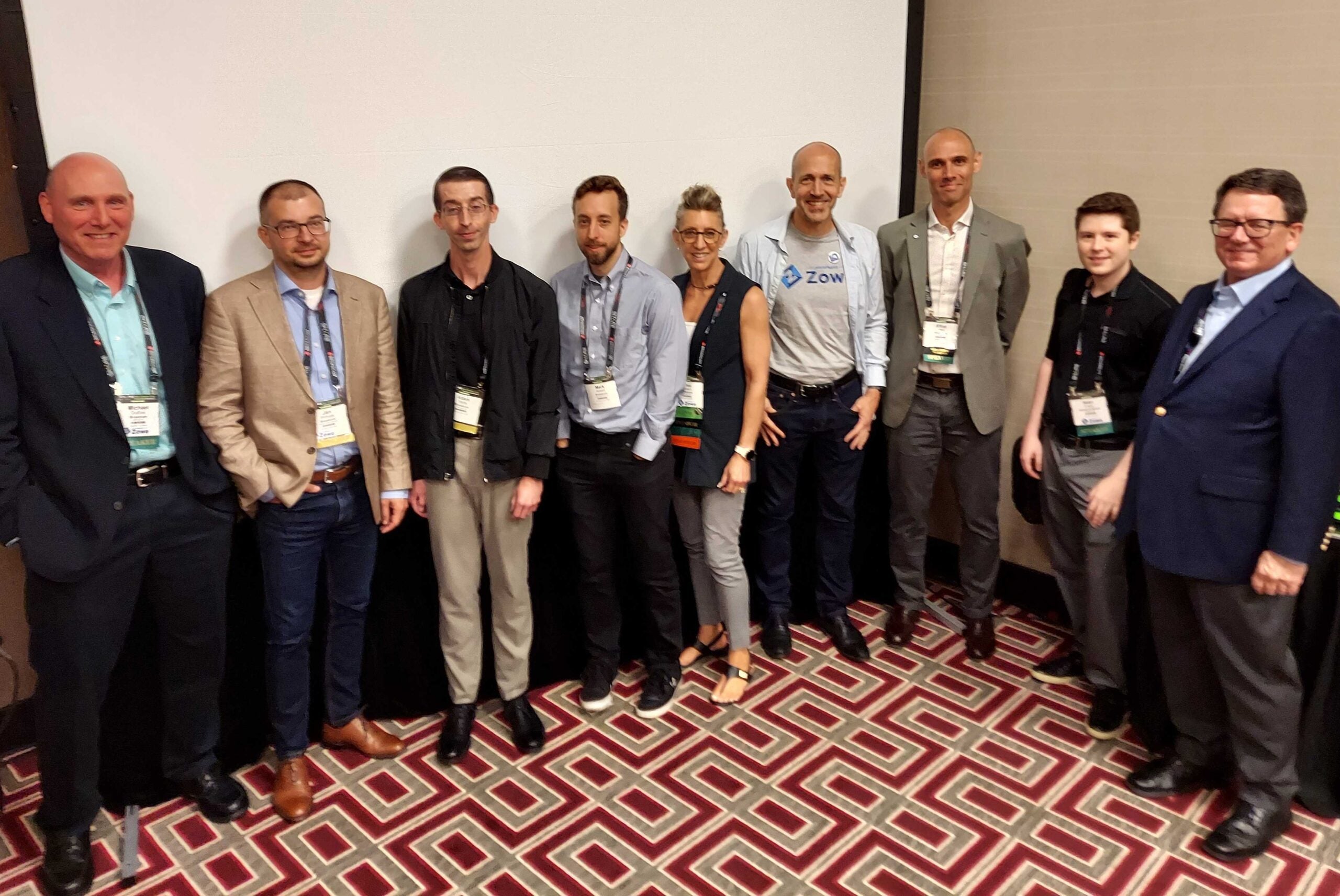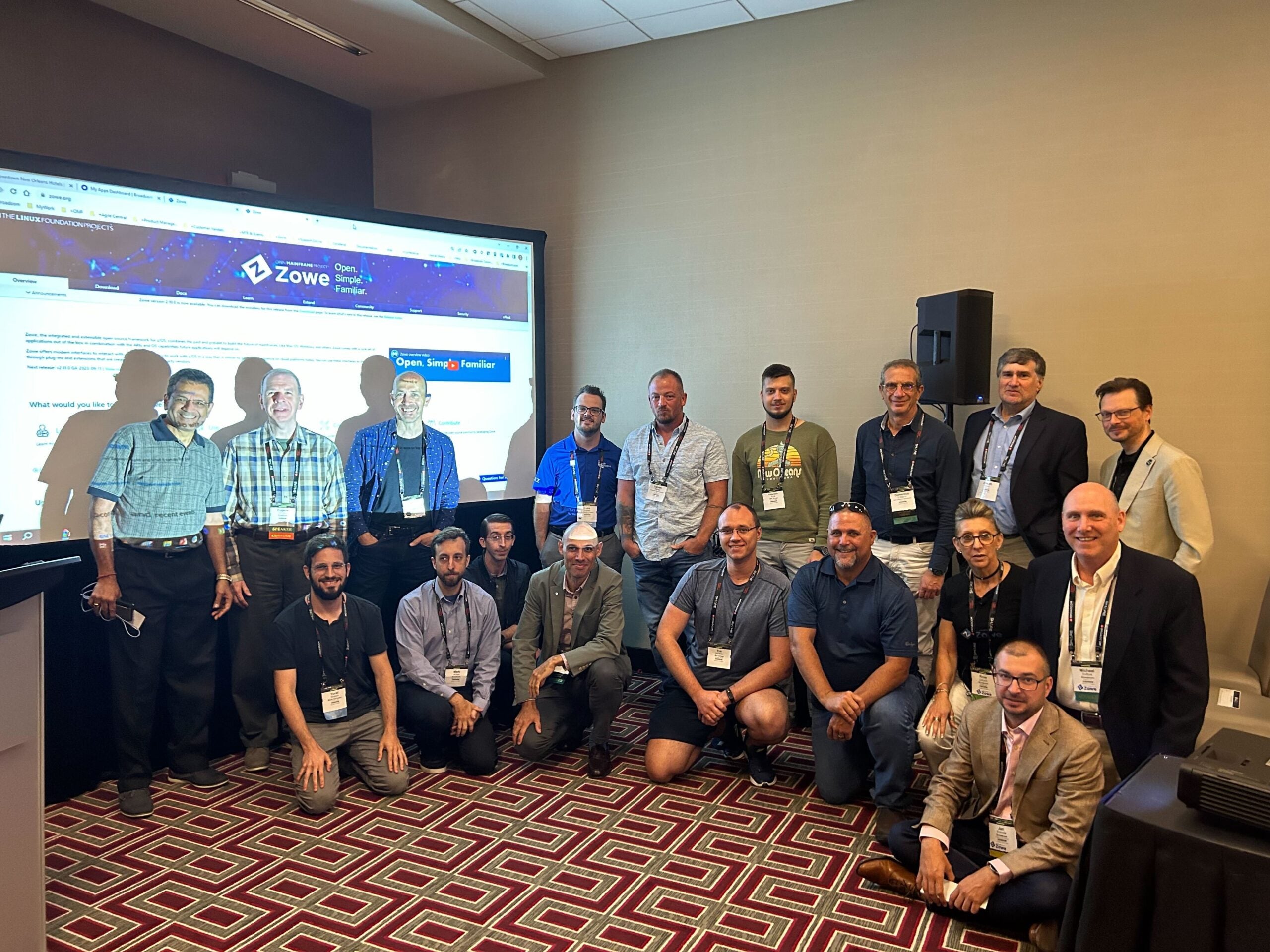Written by Joe Winchester, Member of the Zowe Advisory Committee (ZAC) and Senior Technical Staff Member at IBM,
Sitting in the opening keynote at SHARE New Orleans, Joe Theismann (legendary football quarterback and ESPN football presenter) gave a thundering presentation full of energy and wisdom from his days in the sport. “Team,” he yelled at the audience, stands for Together Everyone Achieves More. It seemed so fitting and apropos to set the mood for the week ahead.
From New Orleans
This conference marks a special anniversary for The Open Mainframe Project’s Zowe community who celebrate five years since the project was first announced at SHARE St. Louis in 2018. In New Orleans the 2023 SHARE agenda included 14 presentations with Zowe in their title, together with many more sessions and panels that showcased the project from DevOps, Education, and Mainframe Modernisation. I was fortunate enough to be involved in some of these, but more fortunate to be able to watch and listen as customers, vendors, students, educators, system programmers, developers, security experts, and so many great folks in the community engaged with each other to discuss what they’re doing with Zowe. While in the room watching the IBA Group showcase their fantastic Zowe Explorer extension for IntelliJ, I reflected on the fact that the IBA Group wasn’t part of the Zowe community at its inception, yet here they were having travelled from Poland to proudly show their phenomenal mainframe IDE. Likewise, Segus Software, Phoenix Software International, or BMC, each of whom proudly talked to their amazing Zowe extensions as part of a “Vendor Showcase” talk, had all became engaged with the Zowe project post inception. I paused to wonder how far the community had moved since St. Louis when Broadcom, IBM, and Rocket Software, together with the Open Mainframe Project, first launched Zowe.
To St. Louis
Back in St. Louis, I recalled standing in front of 115 mainframe system programmers attempting a Zowe deep dive alongside Sean Grady from Rocket Software, Tim Brooks from IBM, and Dan Kelosky from Broadcom. We all nervously demoed a very early technical preview of what had been quickly assembled together to give a vision of where we wanted to take the project. Some folks in the audience were unhappy we didn’t have a finished product, some were skeptical that the project would succeed, and others were already challenging us with difficult questions on security and installation technologies. We had our work cut out.
St. Louis 2018 was my first SHARE conference, with my IT background being mostly around development tools for software languages (Basic, Smalltalk, Java, etc.), with a ten-year stint being part of the Eclipse Foundation working on their open source IDE. I often tell people I might look like a mainframer, but I’m not one. To be fair, I have worked on a number of Eclipse front-end tools for different pieces of the mainframe, including CICS, MQ, and Db2 so I’m not a total klutz. I can even spell COBOL (as well as SHARE) correctly in all uppercase !!!
SHARE is what we do, it’s who we are, …
After the roasting we got in front of the SHARE audience in St. Louis, some of whom left the room unimpressed with what we had to show back in 2018, many folks came up to us at the end and said, “Thank you, you’re taking SHARE back to its roots. This is what we do, not who we are”. It took me a while to figure out what they meant, but in essence, the SHARE community was created in 1955 by 17 customer organizations that purchased the first business-class machine and decided to collaborate around how to make the best use of the platform. They assembled as a community to create the original SHARE conference, where folks would get together to collaborate on ideas and swap code snippets, even creating their own operating system (aptly named SHARE Operating System or SOS) in 1959 to run on the IBM 704.
Bingo! SHARE was the birthplace of smart mainframers getting together to collaborate and get interesting and useful things done. It was the perfect place to launch Zowe in 2018, and no matter how frightening it was to present to 115 super smart system programmers, the energy in the room back then came from their passion for wanting to collaborate with ideas and feedback to help make Zowe successful. There was hope left after our disastrous deep dive session.
From there to here and everywhere in between
The five years with the Zowe project have been one of the most enjoyable of my IT career. At times, we’ve been lost, but every time, we’ve managed to find our feet by sticking to the guiding principles set down in the first design camp: Open, simple, and familiar. Folks have come and gone on the project, and each time we’ve lost a key contributor, I’ve thought, “Yikes, how will we ever make do without their knowledge?” Yet someone new has stepped up to carry the torch, bringing fresh ideas and energy to the project. This has enabled Zowe to never become stale, to continuously evolve, and most importantly to always shape itself to whatever issues customers were facing. The adage “Fail fast, fail often” is often levied at software teams, encouraging them to not get stuck with ideas that don’t work and instead constantly adapt and sharpen the pieces that do. By discarding the failed pieces and doubling down on the good, whether planned or by accident, the project meanders albeit chaotically towards ultimate success. At Zowe, the community does its fair share of failure (we only included an SMP/E installer with version 1.9, we didn’t include support for certificates in keyrings until 1.13, and we released version 2.0 with such poorly performing z/OS launch scripts time that some customers reported it took upwards of one hour for the started task to begin). Notwithstanding these, each time customers told the Zowe community what was broken, the squads and committers responded with fixes, new features, and enhancements. At IBM, I often spend time with customers struggling to get a piece of Zowe working for them, and I’m always humbled by their patience and enthusiasm to jump on web conference calls to live debug the problem, as well as the willingness of other Zoweians from across the squads and vendor community to help out cross-company to get the job done.
The Zowe Brand
Folks often ask what the word Zowe means. The true story is one that is best told over a cup of tea or coffee, as the tale is a mixture of urban myth and misspelling, but the best interpretations I’ve heard is that Zowe stands for Z Open We.
Z for the IBMz mainframe computing platform. Open for the principles that underpin and govern everything the community does. We being the third person nominative pronoun denoting more than one person, a collection of individuals, or in Zowe’s case, a community of vendors, users, customers, students, educators, hobbyists, and everyone else wanting to share their knowledge and ideas to do cool things around #opensource on the mainframe. Along the way, we all learn a little bit about each other and a little bit about ourselves.
Together, everyone achieves more. Joe Theissman was right. We did achieve more as a team than each of us could have done as individuals or solo vendors.
Thank you SHARE, thank you The Open Mainframe Project, and thank you Zoweians past, present and future.
Cheers.

